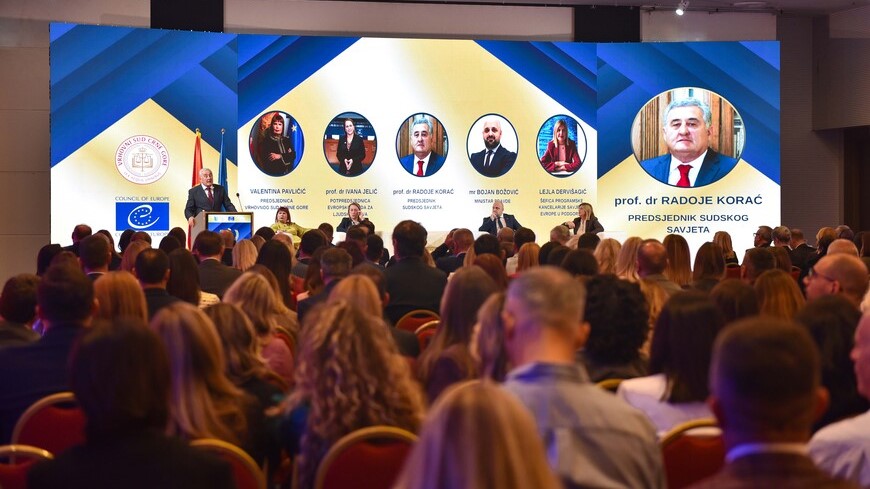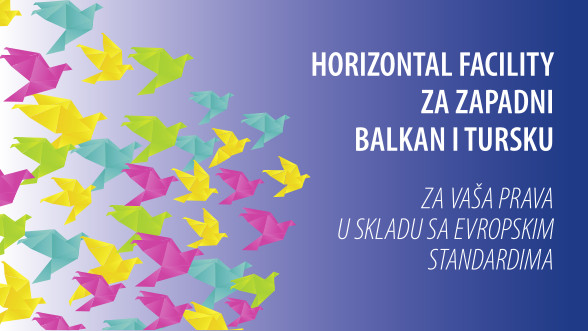Judicial leaders from across Montenegro met in Budva on 29-30 October to reflect on the legacy and continued relevance of the European Convention on Human Rights, 75 years after its adoption. The high-level Judiciary Days event brought together judges from the Supreme, High, and Basic Courts, as well as representatives from the Administrative and Commercial Courts, to discuss key developments and challenges in criminal, civil, and administrative law.
Discussions focused on protective measures against domestic violence, electronic evidence and secret surveillance, SLAPP lawsuits, and environmental litigation.
The action “Strengthening accountability of the judicial system and enhancing protection of victims’ rights in Montenegro”, facilitated the organisation of the conference, including the participation of judges from the European Court of Human Rights. This support allowed the event to feature interactive discussions and practical sessions addressing contentious issues in the work of court departments across all legal sectors.
During the ceremonial opening, participants were addressed by the President of the Supreme Court of Montenegro, Valentina Pavličić; Vice-President of the European Court of Human Rights, Ivana Jelić; the President of the Judicial Council of Montenegro, Radoje Korać; the Minister of Justice, Bojan Božović; and the Head of the Council of Europe Program Office, Lejla Dervišagić. The participation of Vice-President Jelić, as well as that of three other judges of the European Court of Human Rights, contributed substantial value to the event. As the keynote speaker, Vice-President Jelić emphasised the importance of the European Convention on Human Rights in the functioning of the national judiciary.
Their expertise provided comparative insights, strengthened judicial capacities, and highlighted best practices in applying ECHR standards in domestic proceedings, reinforcing the link between national jurisprudence and international human rights law.
This activity is part of the joint European Union and Council of Europe programme “Horizontal Facility for the Western Balkans and Türkiye.”


